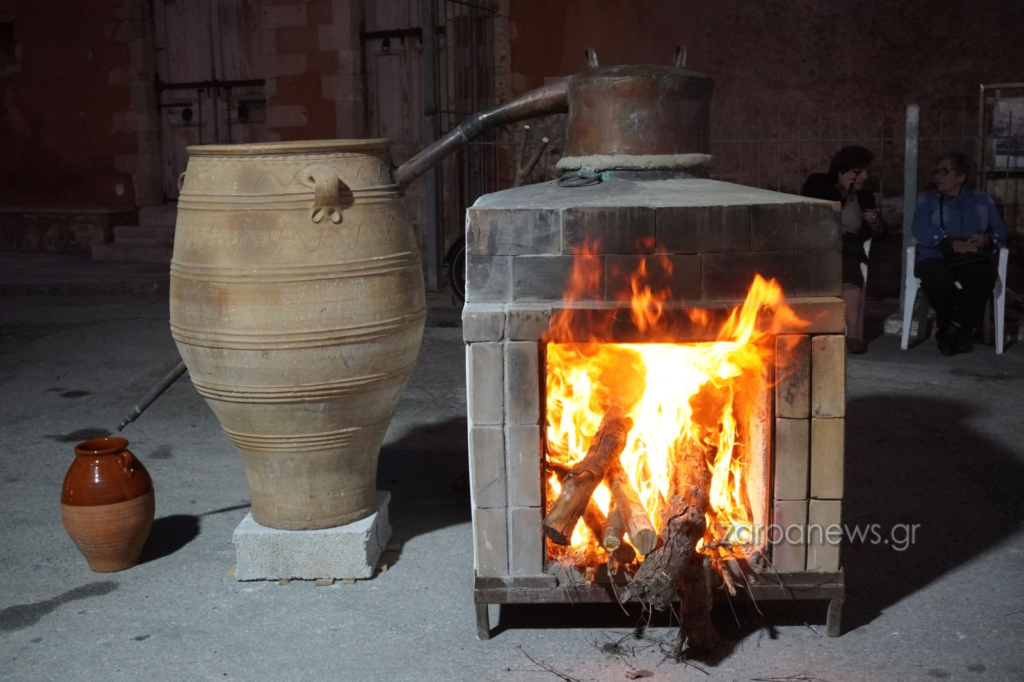Crete, the largest island in Greece, is renowned for its rich cultural heritage, stunning landscapes, and, perhaps most famously, its vibrant culinary traditions. The island’s food is a testament to its history and the bountiful natural resources it offers. One of the most enjoyable ways to experience Cretan cuisine is through its traditional food festivals. These festivals are more than just a showcase of delicious dishes; they are a celebration of community, tradition, and the island’s deep-rooted connection to the land and sea.
The Significance of Food Festivals in Crete
Food festivals in Crete are deeply ingrained in the island’s culture. They serve as a way to preserve and promote traditional recipes and cooking methods that have been passed down through generations. These events also foster a sense of community and belonging, as locals and visitors come together to share in the joys of Cretan cuisine.
Key Traditional Cretan Food Festivals
Rakokazano Festival
The Rakokazano Festival is a unique event that takes place in several villages across Crete during the autumn months. This festival revolves around the production of raki, a traditional Cretan spirit distilled from the remnants of grapes after the winemaking process.
- Distillation Process: The festival showcases the traditional distillation process in copper stills, where locals gather to watch and participate. The atmosphere is filled with the fragrant aroma of boiling grape must, creating a warm and inviting ambiance.
- Food and Music: Alongside raki tasting, the festival features an array of traditional Cretan foods, including grilled meats, cheese pies, and fresh salads. Live music and dancing are integral parts of the celebration, highlighting the island’s rich musical heritage.
Chestnut Festival in Elos
The village of Elos, located in the mountainous region of western Crete, hosts the annual Chestnut Festival in October. This festival celebrates the chestnut harvest, a vital crop for the local community.
- Chestnut Dishes: Visitors can enjoy a variety of dishes made from chestnuts, such as chestnut soup, roasted chestnuts, chestnut bread, and desserts like chestnut cake and sweet preserves.
- Cultural Activities: The festival also includes traditional Cretan music, dancing, and exhibitions showcasing local crafts and agricultural practices. It’s a wonderful opportunity to experience the rural life of Crete and the island’s agricultural heritage.
Feast of St. Titus
Held in the historic town of Heraklion, the Feast of St. Titus is a religious celebration that also features a vibrant food festival. St. Titus is the patron saint of Crete, and his feast day is a significant event on the island.
- Religious Observances: The festival begins with religious ceremonies and processions in honor of St. Titus, followed by communal feasting.
- Traditional Foods: The feast includes an array of traditional Cretan dishes, such as lamb with stamnagathi (wild greens), dolmades (stuffed grape leaves), and a variety of mezze (small dishes). Local wines and raki are also served, enhancing the festive atmosphere.
Wine Festivals
Crete’s wine festivals, held in various regions throughout the summer and autumn, celebrate the island’s long-standing winemaking traditions. These festivals are a tribute to the island’s vineyards and the hard work of local winemakers.
- Wine Tasting: Attendees have the chance to sample a wide range of Cretan wines, from crisp whites to robust reds. The festivals often include guided tastings, where experts explain the characteristics of different grape varieties and winemaking techniques.
- Gastronomy: Alongside wine, there are plenty of traditional Cretan dishes to enjoy, such as grilled octopus, dakos (barley rusks topped with tomatoes and cheese), and snails cooked with rosemary. The combination of food and wine creates a delightful gastronomic experience.
Olive Oil Festivals
Crete is famous for its high-quality olive oil, and several festivals celebrate this “liquid gold.” These festivals highlight the importance of olive oil in Cretan cuisine and its cultural significance.
- Olive Oil Tasting: Visitors can taste various types of olive oil, learning to appreciate the differences in flavor and quality. There are also demonstrations of traditional olive oil production methods.
- Cooking Demonstrations: Local chefs often give cooking demonstrations, showing how to incorporate olive oil into traditional Cretan dishes. Recipes include simple yet delicious meals like horta (wild greens) drizzled with olive oil and lemon, and apaki (smoked pork).
The Cultural Impact of Food Festivals
Cretan food festivals play a crucial role in preserving and promoting the island’s culinary traditions. They provide a platform for local producers to showcase their products and educate the public about traditional Cretan cuisine. These festivals also strengthen community bonds, as they bring together people of all ages to celebrate their shared heritage.
Conclusion
Traditional Cretan food festivals are more than just gastronomic events; they are vibrant celebrations of the island’s cultural heritage, community spirit, and natural bounty. Whether you are savoring a glass of raki at the Rakokazano Festival, enjoying chestnut delicacies in Elos, or tasting the finest Cretan wines, these festivals offer a unique and immersive experience. They invite locals and visitors alike to engage with the rich culinary traditions of Crete, ensuring that these cherished practices continue to thrive for generations to come.


